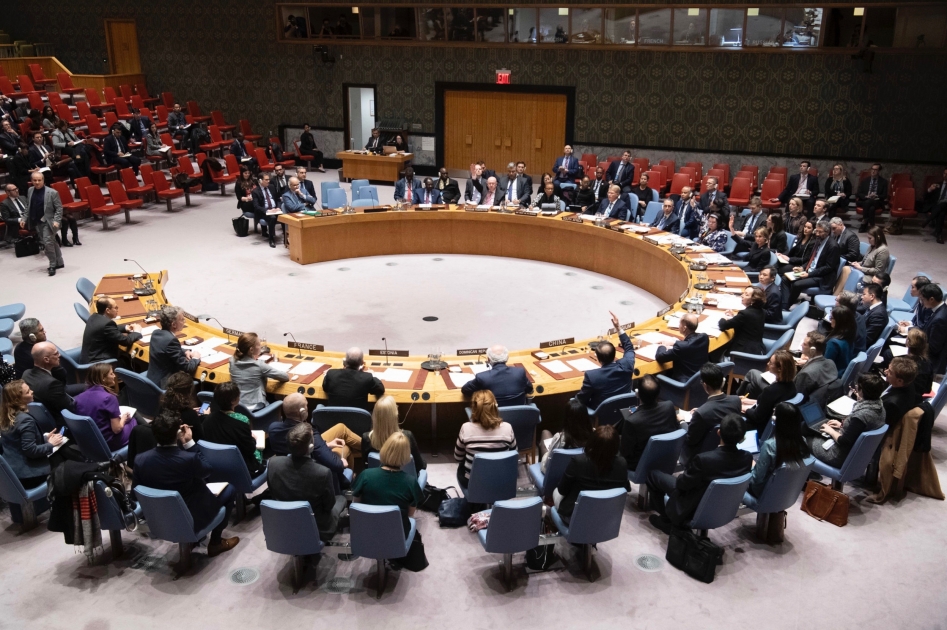Statement by Permanent Representative Vassily Nebenzia following the UNSC vote on a draft resolution on cross-border humanitarian assistance mechanism for Syria, put forward by the two humanitarian penholders
During the vote on the draft resolution put forward by the co-authors, Russia voted in abstention with just one purpose – not to block cross-border assistance to Syrian Idlib, which is the only province that still truly needs this format of delivering supplies. Let me remind, that from the very first day of negotiations we reiterated our commitment to this goal, that is why we did not object against keeping the Turkish crossing points.
We are still clueless as to why throughout all this time several delegations strongly refused to join negotiations on our alternative draft resolution. We have not yet been explained why our draft was not suitable in terms of substance. As a matter of fact, now we have come up with the same scheme. No matter how often we say that humanitarian assistance should remain outside political battles, political games around humanitarian aid still continue, and they are quite cynical and dangerous, because the “exchange figures” in those games are in fact Idlib’s inhabitants. It is their interests that our colleagues appear to have risked while pursuing political goals. I can hardly give you the answer to the question how this reconciles with taking care of the people of Idlib that is widely proclaimed at other meetings.
Meanwhile, I suggest making it clear what resolution we have just adopted, so that no one would misinterpret it.
The document extends the mechanism for further 6 months and only for crossings that make way to Idlib from Turkey. The Jordan border crossing "Al-Ramtha" has not been used since summer 2018, the Iraqi "Al Yarubiyah” – since October last year. Syria’s North-East receives humanitarian deliveries from the territories that are controlled by the government. This fact is reflected in UNSG report S/2019/949. However, this is usually silenced down.
To my Estonian colleague I would like to say that it is not Russia’s task to search for sustainable ways to deliver assistance to the Syrian people, this is the task of the United Nations that should be performed in coordination with the Syrian authorities. Under the guiding principles of humanitarian assistance, they must, I stress the word ‘must’, do it in interaction with the Syrian authorities - upon their request and consent. And they will have to do it.
The resolution directly states that this is an urgent and temporary measure, designed to assist those, who cannot be reached through existing routes.
It also prescribes to enhance monitoring of supplies deliveries to those in need. We believe the monitoring cannot be effectively carried out unless UN personnel has access to the operation zone.
This is not a whim, this is a key provision of UNSC resolution 2165, that has never been observed throughout five years of existence of the resolution. However, no one wants to mention it. Specialized reports of the UN Secretary-General also avoid this issue. This is not right, and since the resolution stipulates that another such report is to be prepared, we would very much like to see there the information about what has been done to ensure direct UN access to the operation zone – both in public work and in contacts with groups that are represented in Idlib.
The second important short-term task is to mark vehicles that deliver humanitarian assistance. How to do it and what insignia to use is not so important. However, those vehicles should be easy to tell from commercial and other traffic.
Firstly, this is a basic security requirement during an armed conflict. Secondly, this is an issue that has to do with transparency of the operation, and thirdly this is an important confidence-building measure, while confidence (whatever one might say) is to be restored in relations with the Syrian authorities.
We are convinced that without creating an atmosphere of acceptance, no international organization will be able to establish stable and effective operation in the country. Again, this is not what we fancy, this is what UNGA resolutions on humanitarian assistance directly prescribe. And it is these documents that stipulate that central authorities of the host country should play the leading role in initiating, providing, and coordinating assistance at their territory. We should bear this in mind when we get back to the question of cross-border assistance. This is a principal question. We welcome that this resolution embodies a reference to the guiding principles of humanitarian activity, contained in resolution 46/182.
So, we again have pointed out some problematic moments about this mechanism. Alas, no prerequisites to solve them are visible so far. We hope this worrisome trend will be reversed, otherwise we will face the same set of problems when we address this issue again in summer. This task can only be solved once we get back to the basic guiding principles of providing humanitarian assistance, which is coordination with the government of the host country.
Thank you.
